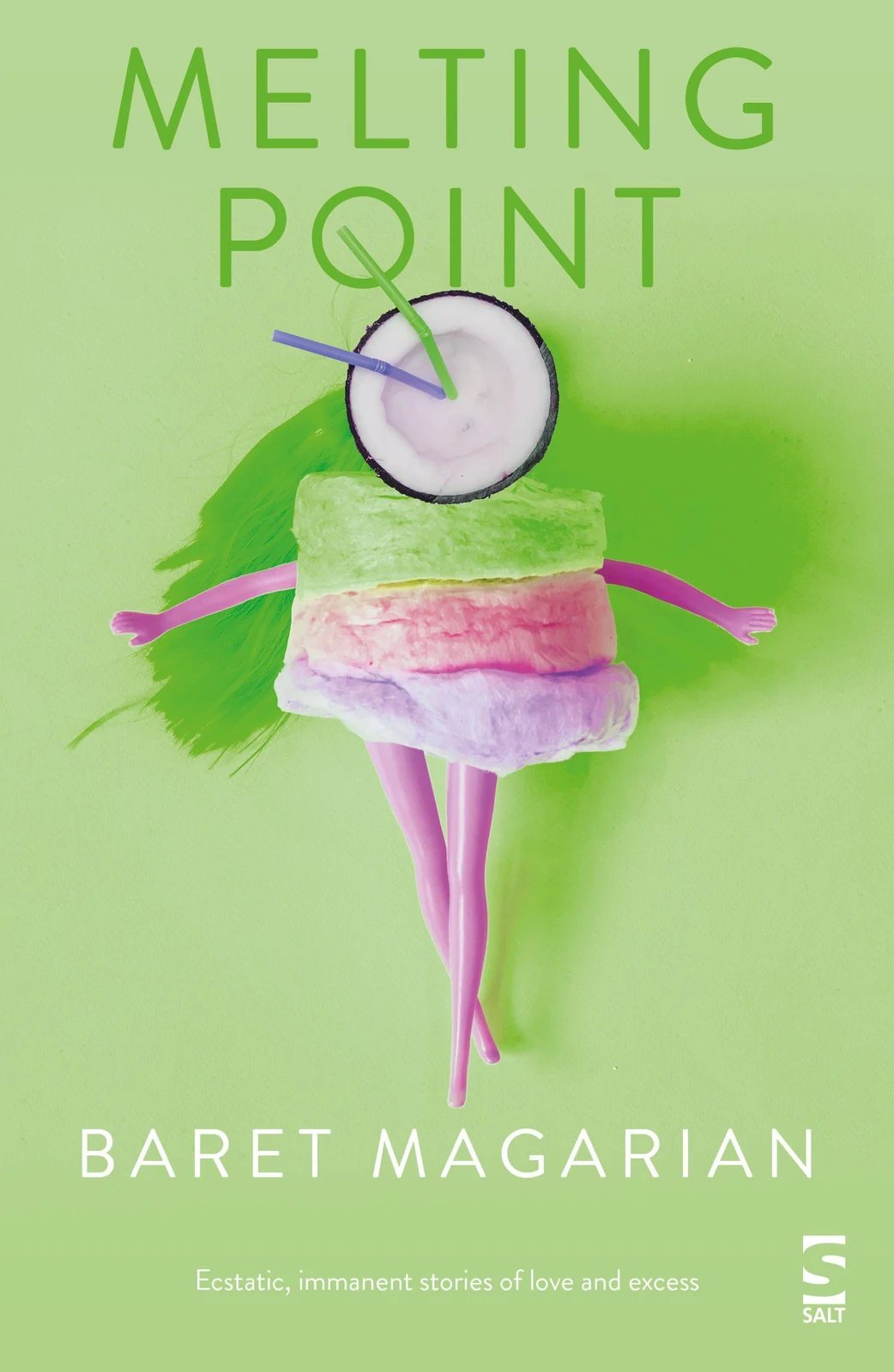
False Epiphanies: A Review of Melting Point by Baret Magarian
Words By Stefanie Molina
When writing about the human condition, it isn’t unusual to find that what seems sophisticated in the mind appears much less so on paper. On the other hand, within certain philosophical ramblings, we may stumble upon a gem or two that seems to make our time worthwhile.
This is the case in Baret Magarian’s Melting Point, released this June by Salt Publishing. This collection of somewhat interesting stories, narrated in long, rambling paragraphs by considerably less interesting people, is occasionally infused with brilliance.
Much of the collection’s doldrums stem from Magarian’s habit of telling the story from the point of view of the wrong character. In “Erasing the Waves,” we uncover the pattern that largely defines this collection: we begin with an unnamed, mediocre protagonist, and through him meet Aaron, a respected film director whose story could succeed in piquing our interest were it not for the thoroughly underwhelming narrative frame. As this dynamic plays out in multiple stories, we watch again and again as these average protagonists learn from their idols some sort of lesson, through which they come to a state of great awe.
These epiphanies are clearly meant to have an impact on the reader, to transform us. But the long-winded, meandering way by which we arrive at these moments causes them to fall flat.
The pattern is punctuated unflatteringly by an intriguing and occasionally gratuitous focus on sex. In each of Magarian’s male-centered stories, there is some kind of visceral description of a woman or of sex that feels crass despite the lack of outwardly vulgar language. These occurrences feel unnecessary, except to cause in the reader a deep dislike of the protagonists. In these stories, women are sexual objects or tools, used to either ruin men or bring them together. Nowhere is this more evident than in the story “Alba,” a piece which—despite its focus on Alba’s life—effectively erases her existence once it accomplishes its goal of using her to bring together in peace the two men who loved her.
The unsophisticated way in which Magarian’s male characters view their female counterparts contrasts wildly with the grace of the few stories in the collection told from the point of view of women. Magarian seems to connect more strongly with his female characters, who have richer emotional worlds and fascinations of more depth and less pretention. Though almost every story presented has a focus on the philosophical, the female-centric tales tend to hold a gentler and subsequently more effective meaning; rather than staring you in the face with an unclear and overwrought message, they slip the reader into a sense of greater rumination.
This, of course, is not always the case. “The Mosque of Còrdoba,” a story about the meditations of a man exploring a mosque, leaves the reader in a state of deep, thoughtful sorrow by its end. The final work in the collection, “The Opiate Eyes of the Buddha,” both confirms and subverts my characterization of the collection—containing overt sexualization and a scene of rape juxtaposed with scenes of love, bonding, and spiritual meaning.
These outliers show clearly that Magarian is capable of straying out of the pattern he’s established. Therefore, it’s curious why there isn’t more of what shines in Melting Point—subtle, dancing stories that have beautiful imagery and communicate deep and unexpected meaning. Two of my favorites are “The Watery Gowns,” in which a young woman conquers a shipwreck, and “The Meltdown,” in which a musical schoolteacher leads us through a bout of beautiful, euphonious madness. As we progress through the collection, there’s a growing sense of immensity to the world, as though with each individual short our presence on earth shrinks.
If Magarian can recognize his strengths, he is capable of much more than this collection implies. I look forward to exploring what he creates next.